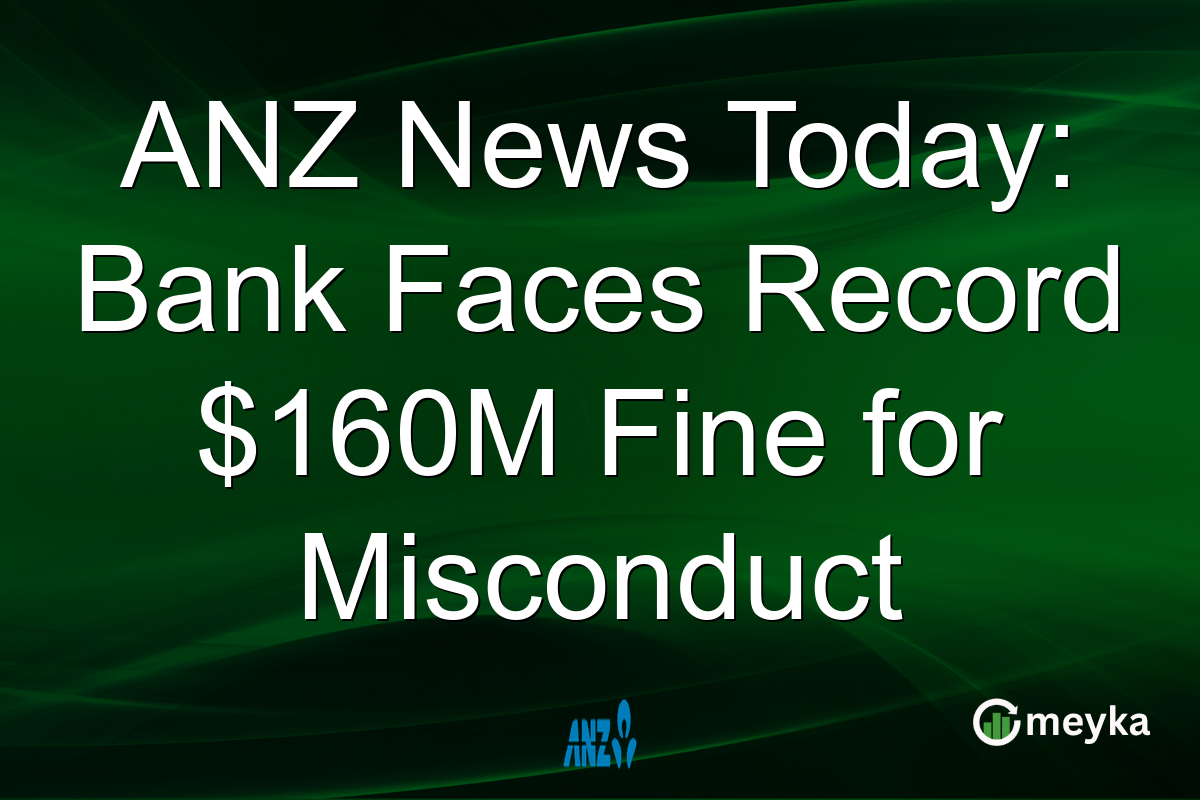ANZ News Today: Bank Faces Record $160M Fine for Misconduct
Today, ANZ faces an unprecedented AU$240 million (US$160 million) fine imposed by the Australian Securities and Investments Commission (ASIC). This marks the largest penalty for corporate misconduct in Australian history, impacting approximately 65,000 customers and the federal government. Such a hefty fine underlines significant corporate governance issues within the bank and raises questions about its practices. How will this penalty affect ANZ’s market position and what does it mean for investors?
The Context of the ANZ $160M Fine
On September 15, ANZ agreed to pay a record AU$240 million penalty after admitting to multiple breaches of corporate conduct regulations. The Australian Securities and Investments Commission (ASIC) emphasized that this misconduct included overcharging fees and failing to disclose conflicts of interest. This development comes after ASIC’s extensive investigation into ANZ’s practices. Further details on Reuters highlight how this case impacts the perception of Australia’s banking sector globally. This shows the repercussions for failing to maintain ethical business standards.
Impact on ANZ’s Financial Health
Despite the fine, ANZ’s stock, listed as ANZ.AX, saw a slight increase of 0.46% to A$32.99 at the time of this report. This reflects resilient investor sentiments possibly buoyed by ANZ’s strong market fundamentals, including a robust dividend yield of 5.00%. However, its price-to-earnings ratio of 14.88 and a stock price hovering near its 52-week high of A$34.09 suggest limited upside potential in the short term. For investors, keeping a close eye on expense management and regulatory compliance becomes crucial for future stability.
Market Sentiment and Investor Reaction
Investor sentiment remains mixed in the wake of the ANZ misconduct penalty. While the market shows slight confidence, social platforms like X and Reddit reveal concerns around the bank’s governance practices. ANZ’s financial metrics, such as operating cash flow growth at 53.39% year-over-year, offer a silver lining for some investors. Nevertheless, the penalty underscores the need for improved regulatory compliance, which could incur additional administrative costs. The balance between growth and governance will be crucial in maintaining investor trust moving forward.
Looking Ahead: ANZ’s Path Forward
As ANZ moves past this significant setback, analysts are gauging the long-term impacts of such misconduct cases on its operations and reputation. Although the stock grade is B+ with a buy recommendation, the company faces headwinds including economic uncertainties and potential regulatory changes. ANZ is slated to announce its upcoming earnings on November 10, 2025, which could provide further insights into its operational adjustments and strategic direction. Investors should watch for changes in governance strategies and cost management measures to realign their expectations and investment strategies.
Final Thoughts
In the face of regulatory challenges marked by the AU$240 million fine, ANZ’s ability to navigate its corporate governance pitfalls will be a determinant of its market resilience. The bank’s growth trajectory, reflected by its strong dividend yield and operational momentum, suggests some investor optimism remains intact. However, this incident serves as a critical reminder that upholding ethical standards is as crucial as financial performance. For investors, remaining informed about ANZ’s regulatory developments and financial health will be vital in decision-making.
FAQs
The fine arose from ANZ’s violations in corporate conduct, including fee overcharging and conflicts of interest, affecting around 65,000 customers and receiving scrutiny from ASIC.
Though the stock showed a minor increase to A$32.99, the penalty may lead to increased administrative costs and scrutiny, impacting short-term growth potential.
Investors should monitor ANZ’s governance reforms, cost management, and upcoming earnings report on November 10, 2025, for insights into its strategic direction.
Disclaimer:
This is for information only, not financial advice. Always do your research.






